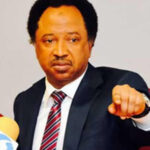The affairs of local government areas as democratic institutions and the third tier of government under the Constitution of the Federal Republic of Nigeria have been impeded by the state governments.
In the last 15 years, elections into local government councils are largely seen as rewards to loyalty to the ruling party in the state. Indeed, council polls over the years have witnessed the affirmation of nearly, if not all the candidates of the ruling party. With the state government constituting the electoral umpire for the council polls and perfectly taking charge of the tribunal, the opposition parties always concede defeat even before the elections are conducted or simply boycott the elections.
- We won’t allow foreigners overrun Nigeria – Military
- Kontagora Emir: Niger Gov redeploys commissioner, orders review of election
With all political parties guilty of this charge of denial of democracy at the grassroots, Nigerians have continued to press for reforms in our electoral system.
The call for the reforms was translated into a famous bill which is before the National Assembly; which provides for electronic voting which many have argued will ensure transparency and accountability in our elections.
Remarkably, in the heat of the debate against the adoption of e-voting, the Governor of Kaduna State, Mallam Nasir el-Rufai, conducted the state’s council elections using the electronic system.
Despite the criticisms that followed the polls, it remains a bold step in the right direction in our evolving electoral system in need of reforms.
The striking beauty of what El-Rufai did is that a clear message was sent that INEC can conduct e-voting despite the contrary position held by the National Assembly that Nigeria will be not ripe for e-voting come 2023.
There is a need to extend El-Rufai’s e-voting model to all elections.
It is still within time to appeal to the National Assembly to adopt e-voting for the 2023 elections. Hence, clause 52 of the Electoral Amendment Bill which grants INEC the discretion to adopt whatever voting system suitable in the elections is enough to accommodate the fears created by NCC.
Elections with integrity will not only ensure legitimacy but will also foster peace and unity among rival supporters and parties in an election. Going the way of e-voting will equally reduce the rate of post-election disputes.
Abdullahi Suleiman Otiwe lives in Abuja.

 Join Daily Trust WhatsApp Community For Quick Access To News and Happenings Around You.
Join Daily Trust WhatsApp Community For Quick Access To News and Happenings Around You.


